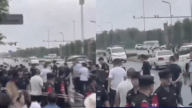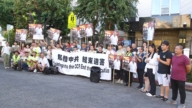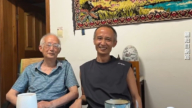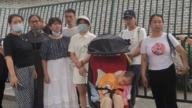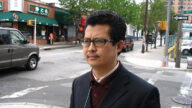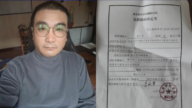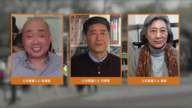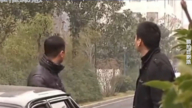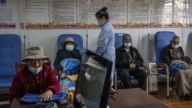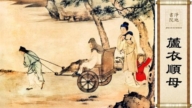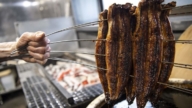【新唐人2014年03月13日讯】近10几年来,中国大陆进行的器官移植数量暴增,引发国际社会对器官移植供体的质疑。面对器官来自死刑犯的指控,中共官方曾数度改口。日前,中共前卫生部副部长,也是全国政协委员的黄洁夫承认,中共曾系统性的摘取死囚器官作移植用,他还透露,截至目前,仍有死囚在自己及家属都不知情的情况下“被捐献”器官。
据香港《明报》报导,中共前卫生部副部长黄洁夫日前接受媒体采访时表示,由于大陆过去长期缺乏民众捐赠器官,因此曾系统性的摘取死囚器官作为移植用途。
黄洁夫透露,死囚器官的捐献都是医生跟局部的人,包括法院和武警互相沟通,没有办法说清道明。当被问到死囚在捐赠器官前,本人和家属是否知情并同意,黄洁夫坦承:“现在还没有做到。”
原美国国际心身医科大学教授陈彦玲:“在不知道的情况之下,你不能用‘捐献’两个字来美化这种行为。而且在法律上,他是属于有行为能力的人,比如意识不清楚的死囚犯说愿意捐献,有人权意识的国家都不一定会接受的,因为要先判断他的精神状态是不是健康的。”
大陆维权律师刘卫国:“器官捐献,如果是一个自由的人,有完全的行为能力,然后又不违反法律程序规定的话,是可以的。但如果说作为一个囚犯,他的人身不自由,他的意志也是不自由的,很难说他没有受到胁迫或者惩治,这种所谓的自愿,我不能认可。”
黄洁夫还强调,中共当局正致力推广公民捐献器官运动,现时大陆公民捐赠的器官数目已大大超越了死囚的捐赠。对此,台湾心理学教育专家,原“美国国际心身医科大学”教授陈彦玲表示不太可能。
陈彦玲:“在台湾,从1987年开始,就不断的在鼓励、劝导,过了20年,也才增加不到100个人。要改变一个传统观念不是那么容易。中国人还是相信死要全尸。相信人有灵魂的人,也不太会去做器官捐赠的事情。第三个,你要让家属在痛失亲人的情况之下,还要让他同意(捐器官),这不是很容易的事。”
黄洁夫表示,去年8月,中共当局下发捐献器官获取和分配管理规定,将捐献的器官放到人体器官获取组织进行分配,让器官获取变成公开、公正、透明。
对此,去年9月16号,“医生反对强制摘取器官组织(DAFOH)”曾发表声明予以驳斥。声明说,中国的器官获取和分配系统缺乏透明度,匹配过程和器官捐赠者的资讯不向公众或独立第三方开放,也没有谈及如何解决从良心犯身上摘取器官的问题,特别是被关押的法轮功学员,他们是被强制活摘的最大目标群体。
据“中国医疗器官移植协会”(China Medical Organ Transplant Association)数据,从1994年到1999年,大陆约有18500个器官移植,而在2000年到2005年,有60000例器官移植。那么,猛增的41500个移植器官,供体源自何处呢?中共宣称这些器官来自死刑犯。然而,据“大赦国际”组织记录,2000年到2005年间,大陆平均每年处决死刑犯仅1616人。
面对国际社会的强烈质疑,中共当局在器官移植供体的问题上,一改过去一贯否认摘取死刑犯器官的说辞。2007年1月,中共卫生部yabo88官网发言人毛群安在接受“英国广播公司(BBC)”的专访中,声称大多数移植器官来自于死刑犯。2009年8月,中共通过英文版的《中国日报》向全世界发布消息,承认大陆所有器官移植中,有超过65%的器官来自死刑犯。
陈彦玲:“在《大纪元》揭露活摘器官,他们迫于无奈才开始面对,他这样的说法不太能够来掩盖活摘法轮功学员器官这样的一个恶行。”
经过加拿大人权律师大卫•麦塔斯(David Matas),和加拿大前亚太司司长大卫•乔高(David Kilgour)调查,他们提出52种证据,证实中共活摘法轮功学员器官的罪行真实存在。
采访/陈汉 编辑/陈洁 后制/陈建铭
Continued Suspicion Over Organ Donations from Executed Prisoner’s
The international community has brought into
question the source of donors for escalating
numbers of organ transplant operation in China.
The Chinese Communist Party (CCP) has responded in various
ways to allegetions sourcing organs from executed prisoners.
Recently, former Vice Minister of Ministry of Health,
Huang Jiefu, admitted that it is a systematic routine
that the CCP harvests organs from executed prisoners.
He also admitted that these prisoners did not donate the
organs, and their families were unaware of the harvesting.
Hong Kong’s Ming Pao has reported about former Deputy
Minister of the Ministry of Health Huang Jiefu speaking to media.
Huang admitted that transplantation in China, using organs
from executed prisoners, has been conducted systematically.
This is due to a lack of voluntary donation.
Huang Jiefu explained the executed prisoners’ organs were
transferred through doctors and people within the system.
This includes the courts and the armed police,
and that it was hard for him to explain details.
When asked if the donors and the families were
informed and consulted of the donation, Huang Jiefu
admitted that, “We have not been able to do that".
Chen Yanling, Professor and physician: “Under
these circumstances, you cannot exchange
the term ‘not informed’ with the term ‘donation’.
By law, a donor must be capable of making
an independent, informed, free decision.
A healthy mental state must also be identified first."
Liu Weiguo, Chinese human rights lawyer: “Organ
donation is acceptable if it is a free man with full
capacity, and the procedure is according to law.
However, for a prisoner, who’s restricted physically and
mentally, it is hard to say there is no coercion or punishment.
I do not endorse this type of ‘volunteering’."
Huang Jiefu also stressed that the authorities
are committed to promoting organ donation.
The number of donated organs in China has
been far beyond that of executed prisoners.
In this regard, Professor Chen Yanling has her doubts.
Professor Chen Yanling: “In Taiwan, organ donation
has been encouraged and promoted since 1987.
For 20 years, there was only an increase of less than
100. It is not so easy to change a traditional concept.
Chinese culture still believes in
keeping the body intact after death.
Chinese people also believe humans have
a soul, so giving out organ is very unlikely.
Asking the relatives to agree to donation of the
organs while they are grieving is very difficult."
Huang Jiefu also said the CCP had issued regulations
to organ procurement and allocation through the
China Organ Transplant Response System (COTRS).
This system, established in August 2013, functions
to facilitate openness, fairness and transparency.
On September 16, Doctors Against Forced
Organ Harvesting has issued a statement
to refute claims about this system.
The statement said that the COTRS lacks transparency.
The process of matching and information about donors
are not open to the public, or an independent third party.
The announced developments also do not
address the body of evidence indicating organs
are harvested from prisoners of conscience.
The majority of prisoners of conscience who are thought
to have been targeted are Falun Gong practitioners.
According to data released by China Medical
Organ Transplant Association, there were around
18,500 organ transplants from 1994 to 1999.
There were 60,000 cases of organ
transplantation from 2000 to 2005.
What are the sources for the surging 41,500 organ transplants?
The CCP claimed these organs came from executed prisoners.
However, according to information from Amnesty
International, the annual average number of executions
in China between 2000 and 2005 was only 1,616.
With growing intensity of questions from the international
community, the CCP changed its formal stance
of denial regarding organs from death row prisoners.
In January 2007, the CCP Ministry of Health
spokesman Mao Qun’an spoke to the BBC.
He said that that the majority of
organs came from executed prisoners.
In August 2009, the CCP issued a message globally
through its English version of the China Daily.
It stated that two-thirds of organ
donors in China are executed prisoners.
Chen Yanling: “They were forced to face the issue after
the Epoch Times exposed live organ harvesting in China.
The statements cannot hide their crimes of organ
harvesting from living Falun Gong practitioners."
The conducting of live organ harvesting from Falun Gong
practitioners has been investigated by international
human rights lawyer David Matas, and Hon. David Kilgour,
former Canadian Secretary of State for Asia-Pacific.
Together, they have gathered and provided
considerable evidence of these crimes.
Interview/Chen Han Edit/Chen Jie Post-Production/Chen Jianming


